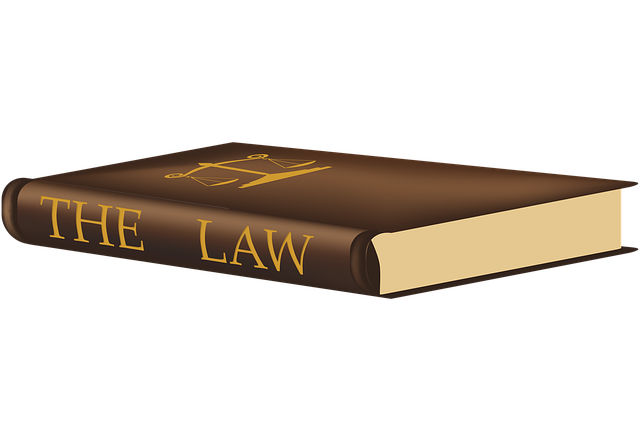Public corruption charges, encompassing bribery, embezzlement, and fraud, are white-collar crimes with significant societal impact despite non-violent nature. These involve abusing power for personal gain, like facilitating illegal property deals or manipulating records. Real estate contract breaches can lead to substantial legal consequences and disputes, emphasizing the importance of seeking expert real estate contract breach legal advice early on. Specialized attorneys navigate complex regulations, mitigate risks, and achieve favorable outcomes through settlement negotiations or court appearances. Evidence, such as financial records, is crucial in public corruption cases centered around real estate contracts. Preventive measures, including transparent contracts with financial disclosure provisions, can reduce the risk of contractual breaches and potential legal pitfalls.
Public corruption charges pose significant challenges, especially within dynamic sectors like real estate. This article delves into the intricate world of public corruption, focusing on its legal definitions and frameworks. We explore how real estate contracts can be vulnerable to breaches with substantial legal implications. Furthermore, we emphasize the critical role of legal advice in navigating corruption allegations. By examining evidence, prosecution strategies, and preventive measures like contractual risk mitigation, this guide offers insights for stakeholders seeking to uphold integrity in real estate transactions.
- Understanding Public Corruption Charges: Definitions and Legal Framework
- Real Estate Contracts: Common Breaches and Their Legal Implications
- The Role of Legal Advice in Navigating Corruption Allegations
- Evidence and Prosecuting Public Corruption Cases
- Preventive Measures: Mitigating Risk Through Contractual Strategies
Understanding Public Corruption Charges: Definitions and Legal Framework
Public Corruption Charges encompass a range of illicit activities where public officials abuse their power for personal gain. This can include bribery, embezzlement, and fraud. In many jurisdictions, these offenses are categorized under white-collar and economic crimes legislation, reflecting their non-violent nature but significant impact on society. The legal framework surrounding such charges is complex, with penalties varying based on the severity of the offense.
Understanding these charges requires a grasp of both criminal law and the specific laws governing public officials in a given region. For instance, real estate contract breach might be relevant when public servants facilitate illegal property deals or manipulate official records. Seeking legal advice is crucial for those accused, as an unprecedented track record of successful defenses can make a difference. Across the country, various agencies are tasked with investigating and prosecuting these cases, reflecting their importance in maintaining public trust and integrity.
Real Estate Contracts: Common Breaches and Their Legal Implications
In real estate transactions, contract breaches can range from failure to pay for properties to non-compliance with agreed-upon terms regarding construction or renovation. These violations aren’t just financial losses; they’re legal issues that can trigger significant consequences. When a breach occurs, whether it’s an intentional act or due to negligence, the affected party may seek legal advice on how to navigate these complexities. Real Estate contract breaches can lead to disputes, with potential remedies including damages, specific performance (requiring the breaching party to fulfill their obligations), or even rescission of the contract.
For his clients, whether they’re corporate entities or individual investors, understanding the legal implications is crucial in white-collar defense scenarios. Legal advice should focus on assessing liability, negotiating settlements, or preparing for court appearances. The severity of the breach and the terms outlined in the contract play a significant role in determining the outcome. Therefore, seeking expert guidance early on can be instrumental in mitigating risks and achieving favorable outcomes, whether it’s resolving disputes amicably or defending against charges related to real estate contract breaches.
The Role of Legal Advice in Navigating Corruption Allegations
When facing public corruption charges, whether related to a real estate contract breach or other financial transactions, seeking expert legal advice is paramount. A skilled attorney specializing in white-collar and economic crimes can provide invaluable guidance through the complex web of regulations and potential legal pitfalls. They help individuals navigate these unprecedented situations with an unprecedented track record of success.
This support involves thoroughly examining the allegations, understanding the applicable laws, and developing a robust defense strategy. Legal professionals ensure their clients’ rights are protected while helping them understand the consequences of their actions. With their guidance, individuals can make informed decisions, potentially mitigating charges or securing more favorable outcomes.
Evidence and Prosecuting Public Corruption Cases
In public corruption cases, evidence plays a pivotal role in prosecuting officials who breach their trust. This includes documentation such as financial records, real estate transactions, and any contracts that highlight discrepancies or illegal activities. For instance, a thorough review of a public servant’s financial statements might reveal suspicious activity or conflicts of interest, especially when coupled with knowledge of their official duties. Legal advice is crucial here; specialized counsel can assist in navigating complex legal frameworks and ensuring the integrity of evidence.
Prosecuting these cases requires a systematic approach, encompassing all stages of the investigative and enforcement process. Across the country, prosecutors must adapt strategies to uncover corruption, which often involves intricate financial networks and shell companies. The goal is to present a compelling case that leads to winning challenging defense verdicts, ensuring justice for the public and setting a precedent for future cases involving real estate contract breaches or other forms of legal malfeasance.
Preventive Measures: Mitigating Risk Through Contractual Strategies
Preventive measures are crucial when it comes to mitigating risks associated with public corruption charges, especially in high-risk sectors like real estate. One effective strategy involves incorporating specific clauses into contracts to ensure transparency and accountability. For instance, including provisions that require regular financial disclosures from all parties involved can act as a deterrent and make it easier to detect any suspicious activities or potential breaches. These contractual strategies are powerful tools against white collar and economic crimes, as they enable clear guidelines and legal recourse if necessary.
By seeking legal advice tailored to real estate contracts, both corporate and individual clients can protect themselves from potential pitfalls. Skilled attorneys specializing in white collar defense can draft agreements that not only comply with legal requirements but also incorporate innovative risk-mitigation techniques. This proactive approach ensures that everyone involved understands their responsibilities, reducing the likelihood of contractual breaches that could lead to serious legal consequences.
In addressing public corruption charges, understanding the nuances of definitions and legal frameworks is paramount. The article has explored critical aspects, including real estate contract breaches as common entry points for allegations, emphasizing the significant legal implications. Accessing competent legal advice remains a strategic move in effectively navigating such complex accusations. Moreover, focusing on preventative measures, particularly through contractual strategies, can significantly mitigate risks associated with public corruption cases. By integrating these insights, individuals and organizations alike can enhance transparency and integrity within real estate transactions and beyond.






